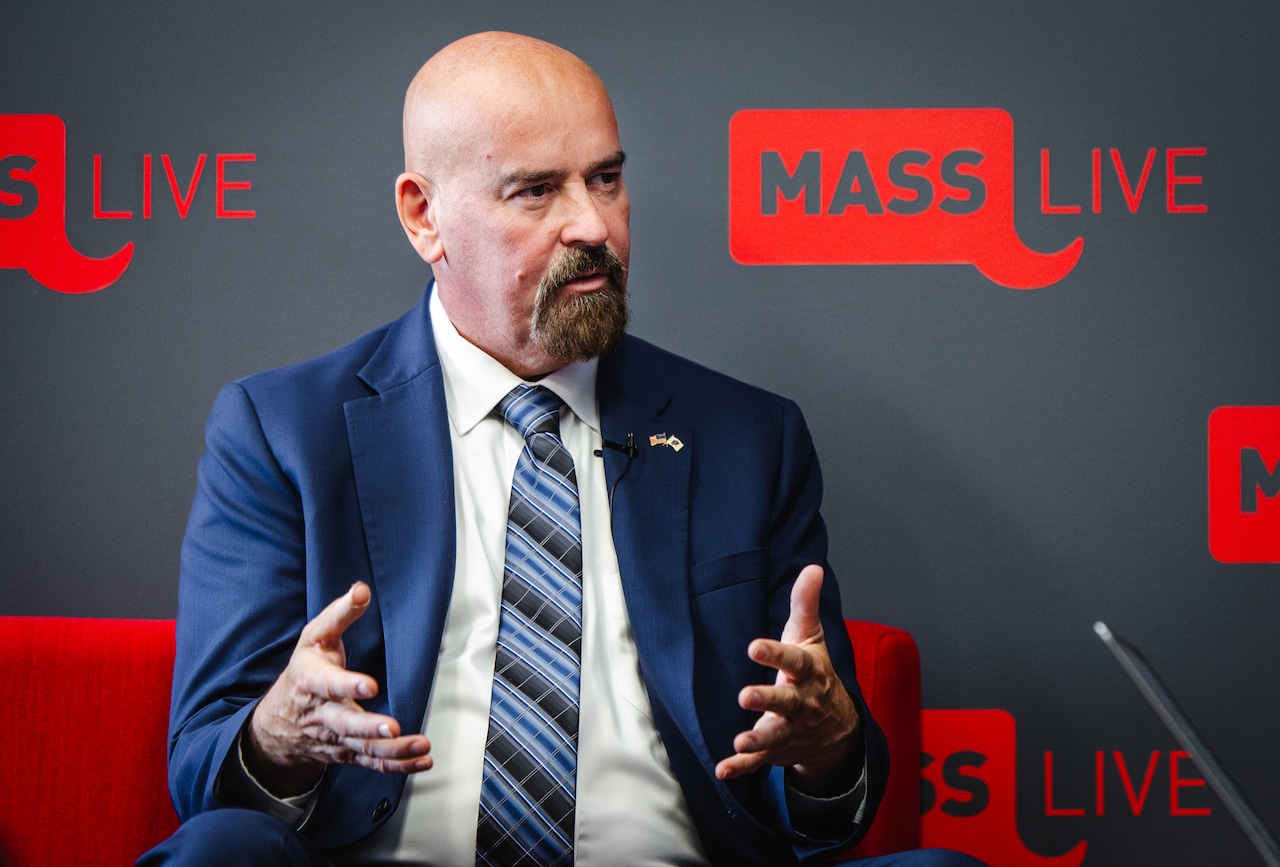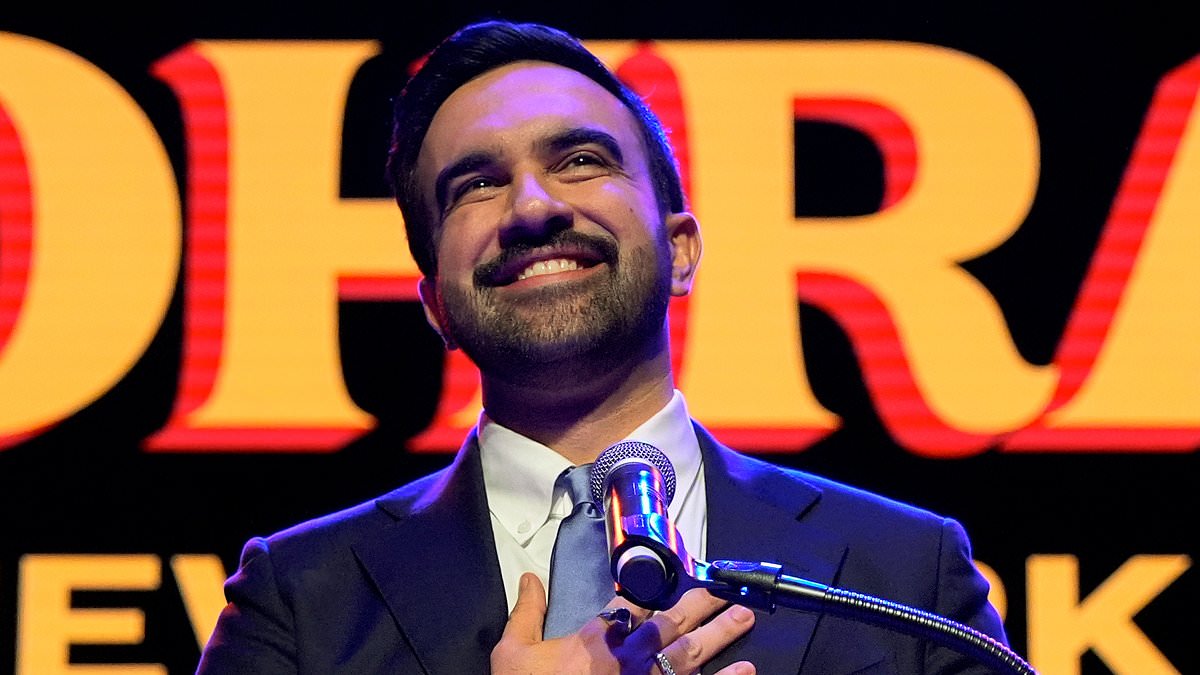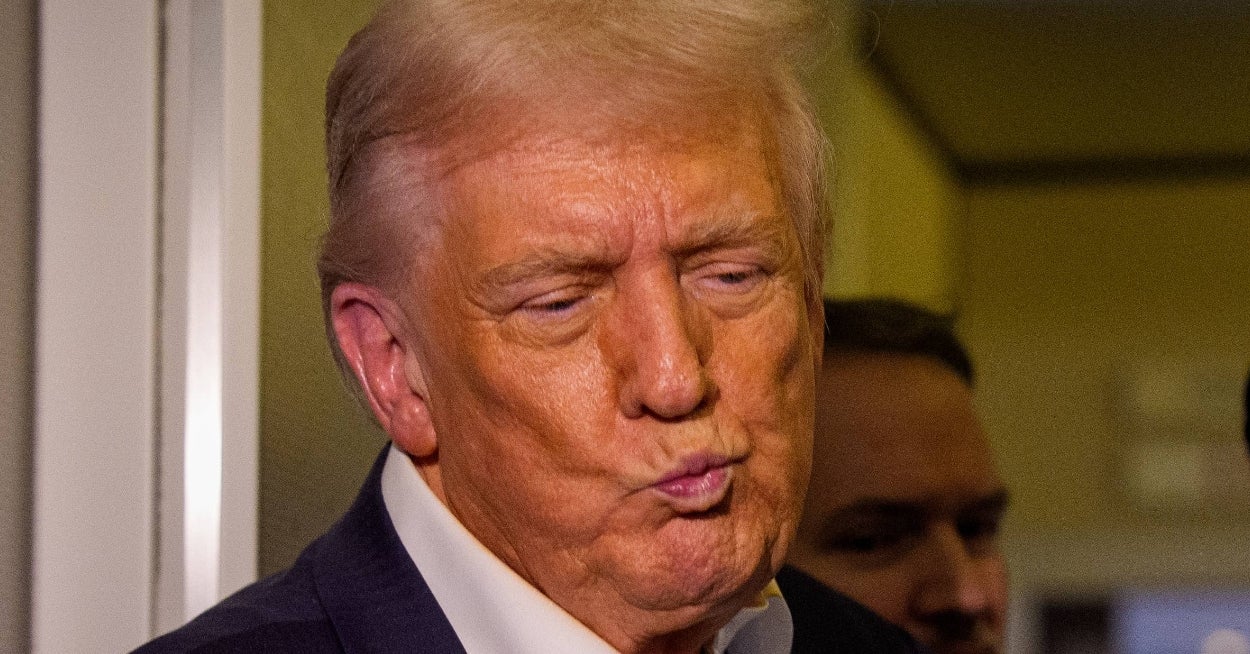Copyright MassLive

There’s one word you hear again and again in conversation with John Deaton. If. If he runs again. If he seeks the endorsement from the power brokers at the state Republican Party. If there’s a primary. If there’s enough enthusiasm from the GOP rank-and-file and from conservative-leaning independents. If. The two words that can change everything pop up nearly 10 times over a 25-minute conversation, appearing so frequently that Deaton, 58, just laughed when MassLive asked him if he had stretched ahead of a wide-ranging interview this week. Read More: More against Markey? Republican John Deaton ‘definitely leaning’ toward 2026 US Senate bid Here’s one more ‘if’: If things unfold as expected, the Marine veteran and crypto lawyer from Swansea will return to the campaign trail during an event in Worcester Monday night, where he’ll likely announce that he’s challenging U.S. Sen. Ed Markey, D-Mass., next year. For now, he’s not stepping on his own message. But maybe he doesn’t have to. It’s effectively in plain view. “Well, if I decide to run, it’s for two reasons. One is that I really believe that there is a path to victory,” he said. “I wouldn’t make the sacrifice. You know, I have a 6-year-old daughter, who’s in first grade, and as you can imagine, running a campaign, you miss things, and you come home and she’s already asleep.” “And I take that seriously, because, you know, I was abandoned by my father,” he continued. “And so I share that with you because I wouldn’t run unless I really, truly thought that I could win. And if I do decide to run, it’s because I truly understand that, every day, people are struggling.” Deaton hasn’t changed much from the first-time candidate who tried to meld working-class populism with a socially moderate message during his first bid for office against U.S. Sen. Elizabeth Warren, D-Mass., in 2024. He lost to Warren, of Cambridge, by a margin of 60%-40% on Election Day. He’s still not a fan of now-President Donald Trump (he thinks, for instance, the Republican has gone too far with his hardline immigration policies). He still supports abortion rights and marriage equality. He said he’s looking forward to drawing bright-line distinctions on those and other issues, including climate change, against Markey. If, of course, he decides to run. The outsider thing Two years ago, Deaton positioned himself as the outsider to Warren’s consummate D.C. insider, playing up his hardscrabble roots in a crime-ridden Detroit neighborhood — and laid out in his memoir “Food Stamp Warrior,” which he distributed at events and in interviews. Deaton’s Senate challenge, however, raised millions of dollars in contributions from the cryptocurrency industry, which he’d represented in lawsuits, moving him into a more elite ring of the political universe. That transition also appeared to be reinforced in recent reporting, asserting that Deaton was trying to lock up an endorsement from the state Republican Party, a move that, if successful, could foreclose any potential primary challengers. Asked whether he could still wear that outsider’s mantle, Deaton insisted that he could, arguing that it was a “mentality” as much as it was a status. “If running a second time immediately turns a person into a politician, I would disagree with that,” he said. “And, so, I do view myself as an outsider.” “The fact that I ran as a Republican nominee, and didn’t support President Trump, in and of itself, proves that I’m an outsider,” he continued. “And so I can say that I have been going around, that part of my decision on whether to run is whether or not there would be support for me, including from potentially people that didn’t necessarily support me the first time.” According to one veteran observer, Deaton will have his work cut out for him — just as he did in 2024. “It’s said in politics that you learn more from the campaigns that you lose than you win,” Western Massachusetts political consultant Tony Cignoli told MassLive. “Even if that’s the case for Deaton, he still has to convince the [state] and [national] GOP that he’s a viable candidate to expend resources on.” Deaton’s 2024 fell short of that mark, Cignoli continued, and against Markey, “it’s hard to conceive that he could muster the independent unenrolled voters he needs to win.” The tenure thing Deaton steered well clear of any age-based attacks on Markey, who is now 79, will be 80 by Election Day, and 86 should he serve out a third, six-year term in the Senate. Arguments that it’s time to change horses, however, are another matter entirely. Markey has been on Capitol Hill for a half-century. The calls for generational change in Washington and elsewhere that have animated the Democratic base for months played out in key races in New York City, New Jersey and Virginia on Tuesday night. “I’m not going to say anything negative about Ed Markey as a person. But whether you are [U.S. Sen.] Chuck Grassley or Ed Markey, 50 years in Washington, working in that swamp of a city is enough,” Deaton said. “And I don’t think you can relate to regular people.” Markey, he noted, still tells the story of driving an ice cream truck to cover his costs at Boston College. “That was 60 years ago,” Deaton said. “And when you ask Sen. Markey what he’s done, he brings up the Telecommunications Act. That was 30 years ago. So I sense that people are losing hope, and I am a different kind of politician.” If elected, he said he’d serve two, six-year terms, and then step down. “I’m someone who believes in term limits, so I would never run [for] a third term,” he said. I want to be able, before I leave this planet ... to say that I tried to give back." Deaton could find a sympathetic audience; when they were asked which word they most associated with Markey, respondents to this week’s UMass Amherst/WCVB-TV poll said “old.” Even so, more than half of the poll’s 800 respondents (54%) said they approved of Markey’s job performance. The Moulton factor While polling shows Markey the prohibitive favorite to win the Democratic nomination in 2026, there’s no absolute guarantee that he’ll emerge from the party’s nominating derby next September. U.S. Rep. Seth Moulton, D-6th District, settled weeks of speculation last month when he launched a primary challenge. He joined Alex Rikleen, a former teacher, who had already launched his candidacy. Like Deaton, Moulton, 47, is a Marine veteran. And, like Deaton, he has made Markey’s age and long tenure on Capitol Hill the principal argument for his candidacy. “Since the last election, we’ve all seen what happens when our party clings to the same old playbook and protects the status quo and refuses to make room for new ideas and new leaders,” Moulton told MassLive last month. “And we have to learn from the lessons of Ruth Bader Ginsburg, Dianne Feinstein and Joe Biden,” he continued, repeating what has now become a familiar line. “And that’s not taking anything away from Sen. Markey’s public service, but it is about investing in our future.” One more potential plot twist: U.S. Rep. Ayanna Pressley, D-7th District. The Boston lawmaker has been widely mentioned as a contender and has not explicitly ruled out a run. Deaton, meanwhile, said he was staying away from the age question and argued that he would resist Trump’s White House where it made sense, and would try to work with it in those instances where it benefited the state. “I think we just need a candidate whose test is, ‘Is it good for America and Massachusetts?” he said. An answer to the balancing test for that question — and more — could come as soon as Monday during Deaton’s event at Off the Rails, a Worcester restaurant. “On Monday night, I’m just going to be me,” he said. “And I think that if I do decide to run and announce, you’re going to see a candidate that is different. That’s all I’ll say is that I’m different than most candidates.” If, of course, he decides to run.



